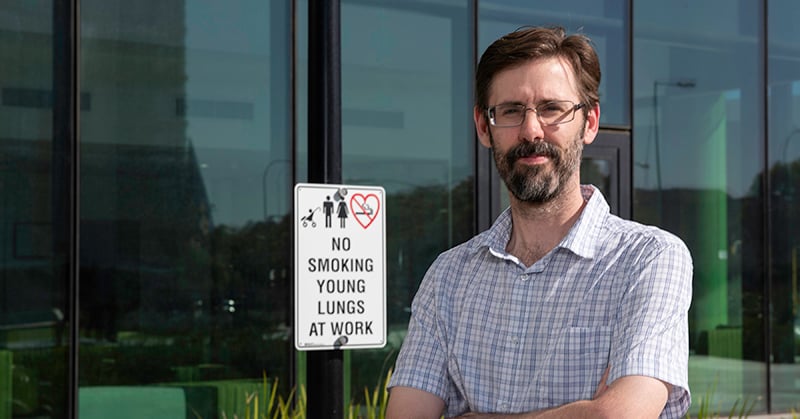The lungs represent a key interface between the body and the environment.
As a result, environmental exposures, particularly those which occur in early life, can have dramatic consequences for respiratory development and physiological function.
The term “Environmental Exposures” traditionally encompasses a wide range of chemical and biological components of both natural and anthropogenic origin (e.g. allergens such as house dust-mites, respiratory viruses, and airborne pollutants, including, electronic cigarette aerosols, tobacco smoke, diesel/biodiesel exhaust and geogenic dusts). However, more recently, the effects of climate change (e.g. increased atmospheric carbon dioxide, altered particulate matter, ozone and allergen exposures and the direct effects of increased temperatures etc.) have been linked with negative impacts on the respiratory (and other) systems. These environmental insults have huge implications for respiratory health, yet their precise effects on lung development and function are not well understood. There is also a paucity of information on ways to mitigate their effects on respiratory health. As such, they represent a huge, yet largely under-recognised, threat to the respiratory health of children and young people. Furthermore, with climate-change models predicting that many environmental exposures will increase in the coming decades, it is critical that additional research in this area be conducted.
We are investigating the physiological and developmental consequences of exposure to a range of environmental insults (pollutants, viruses, particulates, e-cigarette aerosols etc), to formulate evidence-based strategies that can assist families, community, industry, and governments in mitigating the health risks associated with these exposures. By studying the molecular changes initiated by exposure to these agents we can understand in greater detail the mechanisms by which they lead to impaired lung development and function, creating the opportunity to develop therapeutic and other interventions that could benefit millions of children across the globe. Currently, we have large projects underway investigating the health impacts of exposure to (i) electronic cigarette aerosols, (ii) biodiesel exhaust, (iii) increased atmospheric CO2 and (iv) respiratory viruses.

